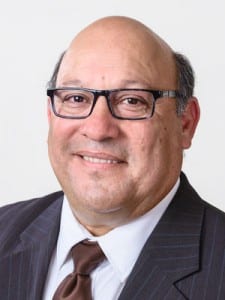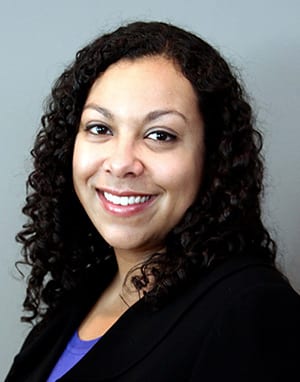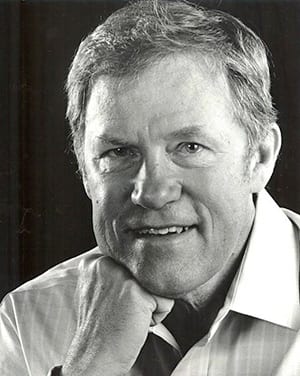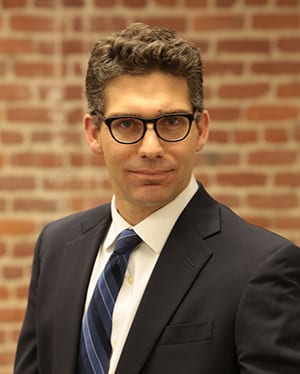By Andrew Cohen
Busy as they may be, more and more Berkeley Law graduates are giving back to the school by mentoring current students. From supervising clinic projects to facilitating professional networks and providing job interview tips, alums are finding a growing number of ways to share their insights and expertise. Here is just a sampling—four such mentors who are making a meaningful impact on students’ lives:
A level playing field

Mentoring is more than an altruistic hobby for Jose Varela ’86. It’s a way of life. Despite a hectic schedule as Marin County’s public defender, he spends significant time guiding students from Berkeley Law, other law schools, colleges, and even high schools. Having developed several mentoring-related programs, Varela sees the impact they have on young lives—and on the mentors themselves.
“For law students and young lawyers, it’s a big plus having parents who were lawyers or come from professional networks,” he said. “That opens a lot of doors. But if you’re the first in your family to go to college or otherwise don’t have those networks, you’re at a disadvantage. I like helping to level the playing field.”
Varela’s many roles include case consultant, career advisor, and father figure. “There are many things you can’t learn in law school,” he said. “Negotiating a salary, dealing with constructive criticism, staying disciplined during a heated trial … it’s a long list. I love helping people navigate those areas.”
Varela mentors Berkeley Law students who work in his office, meet him through the Association of Latino Marin Attorneys, and contact him of their own accord. His advice is often pointed—and never softened by disingenuous praise.
“The problem with some mentors is they think they should be a cheerleader,” he said. “But if we don’t give students realistic assessments, that does them a disservice. Sometimes in life you have to be twice as good to get half as far. That approach is what mentoring is all about.”
Paying it forward

Berkeley Law students ask Cara Sandberg ’12 for myriad forms of guidance. The common thread among her responses: Saying yes. After graduating, she quickly became a go-to mentor for women of color, African-American students, and judicial clerkship applicants.
The role is a natural fit for Sandberg, who was the dean of a Bronx high school before coming to Berkeley. “I remember how utterly confused I felt during my first year of law school,” she said. “Without the guidance of some wonderful, thoughtful, motivated people through the Women of Color Collective (WOCC), I would have been totally lost. When I got to the point where I had some knowledge that was useful to other students, I was excited to return the favor.”
As a student, Sandberg did just that within formal mentoring programs through WOCC and the California Law Review. Now an impact litigation fellow at the Santa Clara County Counsel’s office, she regularly confers with Berkeley Law students.
“It’s a great way to hear about what’s going on at the school and to stay connected,” Sandberg said. “I enjoy seeing how wonderfully available our alumni are to current students. Anytime I reach out to classmates or colleagues about talking with a student or recent grad, they always seem willing to give their time. It’s a wonderful culture.”
Sandberg sees alumni-student connections growing across different practice areas. “You don’t have to be an established law firm partner to be a valuable mentor,” she said. “Whether it’s advice on courses, interacting with faculty, or interviewing tips, alumni can make a real impact on students’ lives.”
Business class

For years, David Roberts ’74 has seen young lawyers struggle to grasp vital business concepts. “A lot of lawyers don’t understand how business really works,” said Roberts, who has founded several companies and is now the managing director of Focus Investment Banking. “Firms and their clients don’t want to spend as much time and money educating new lawyers about how to advise on transactions.”
So when Berkeley Law lecturer Bill Kell launched the school’s New Business Practicum in 2007, he reached out to Roberts and others who could help students bridge that gulf. The practicum teams business students with law students to tackle core issues that new entities often encounter.
“I take on the persona of business person who has a problem and needs advice,” Roberts said of the practicum’s training simulations. “We present all sorts of client personas, from arrogant to chauvinistic to innocent to someone in the midst of a divorce. In the process, we cover practical and ethical issues and address business areas that many lawyers are unable to anticipate.”
The scenarios are all grounded in real-life cases, many of which Roberts has dealt with closely.
“I’ve started a number of companies as an entrepreneur; some that were successful and some that weren’t so successful,” he said. “I’ve had the executive who embezzled, the employee who got sued for sexual harassment, the investor who got cold feet. It’s gratifying to relay these experiences and help students gain a broader appreciation of how to approach key issues, how to solve them, and how to learn what they mean in a larger context.”
Stress reducer

Applications for judicial clerkships have become increasingly competitive and complex. Berkeley Law’s sparkling track record—20 percent of the Class of 2014 landed clerkships—is driven by a focused effort to guide students through the tangled process.
Alums such as Tony LoPresti ’12, a joint fellow with Altshuler Berzon and the Natural Resources Defense Council, help make this possible. Having clerked for two U.S. Court of Appeals judges, he is well suited to help plot strategies—and soothe nerves.
“When I applied for clerkships, the system was more manageable and you didn’t have to begin the application process until after your 2L year,” LoPresti said. “Now, there’s this unstructured race out of your 1L year to apply and the process is intensive and opaque. It takes an incredible amount of time to do it right, so I’m happy to help people along that path.”
As a student, LoPresti won Berkeley Law’s Eleanor Swift Award for Public Service. He also relied heavily on Career Development Office staff members—and alums who had clerked with the judges he was interested in—for insight. “They were phenomenal resources of helpful information and made me want to stay as involved as possible with the school when I graduated,” he said. “I loved my experience there, and I want other students to cherish it too.”
While he knows lawyers lead busy lives, LoPresti sees how much those who find time to mentor value the experience. “A lot of rich wisdom can be passed along that benefits the mentor, the mentee, and the legal profession,” he said. “There’s a reason why mentees almost always become mentors later in life.”